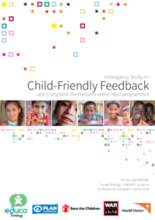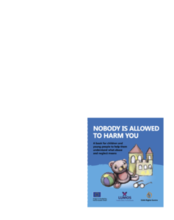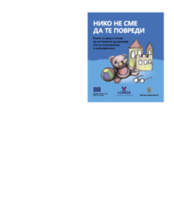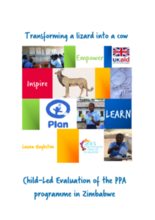Displaying 211 - 220 of 373
Jo Boyden, professor of international development at Oxford University and director of its Young Lives study, has selected five books that challenge Western assumptions and beliefs about child-rearing and how children “should” be raised.
This paper presents findings from a qualitative study exploring the views of 26 children, aged 6–17 years, about their participation in the child protection system in England.
This is a community violence informational document for youth. It discusses the impact that community violence has had on the lives of young people and provides tips on how young people can look out for their safety.
This TedX presentation features Greta Munns, a youth empowerment advocate who was placed in foster care at age fifteen. Her “story” is what prompted her exploration of the foster care system.
This paper addresses the issue of human rights of vulnerable children in Sri Lanka in the wake of the civil war, global climatic change and economic recession.
This report presents findings of a survey designed to document experience and examples of practice in setting up feedback and complaint mechanisms that are accessible to children in the programmes of five international non-governmental organisations: Educo, Plan International, Save the Children UK, War Child UK and World Vision.
This book is designed to help children and young people understand what abuse and neglect are, and who to ask for help if it happens to them or to someone they know. The book is written in the Serbian context and is available in English and Serbian.
This book is designed to help children and young people understand what abuse and neglect are, and who to ask for help if it happens to them or to someone they know. The book is written in the Serbian context and is available in English and Serbian.
In 2011 Plan International UK secured a Programme Partnership Agreement (PPA) with the Department for International Development (DFID). This strategic funding has been used to develop the Building Skills for Life Programme.
This editorial piece from the Child & Youth Services journal makes observations about the children who live away from home and their vulnerability to violence, the shift in the use of violence as a threat to democracy to its use as a defense of democracy, and the exclusion of young people from globalization.





